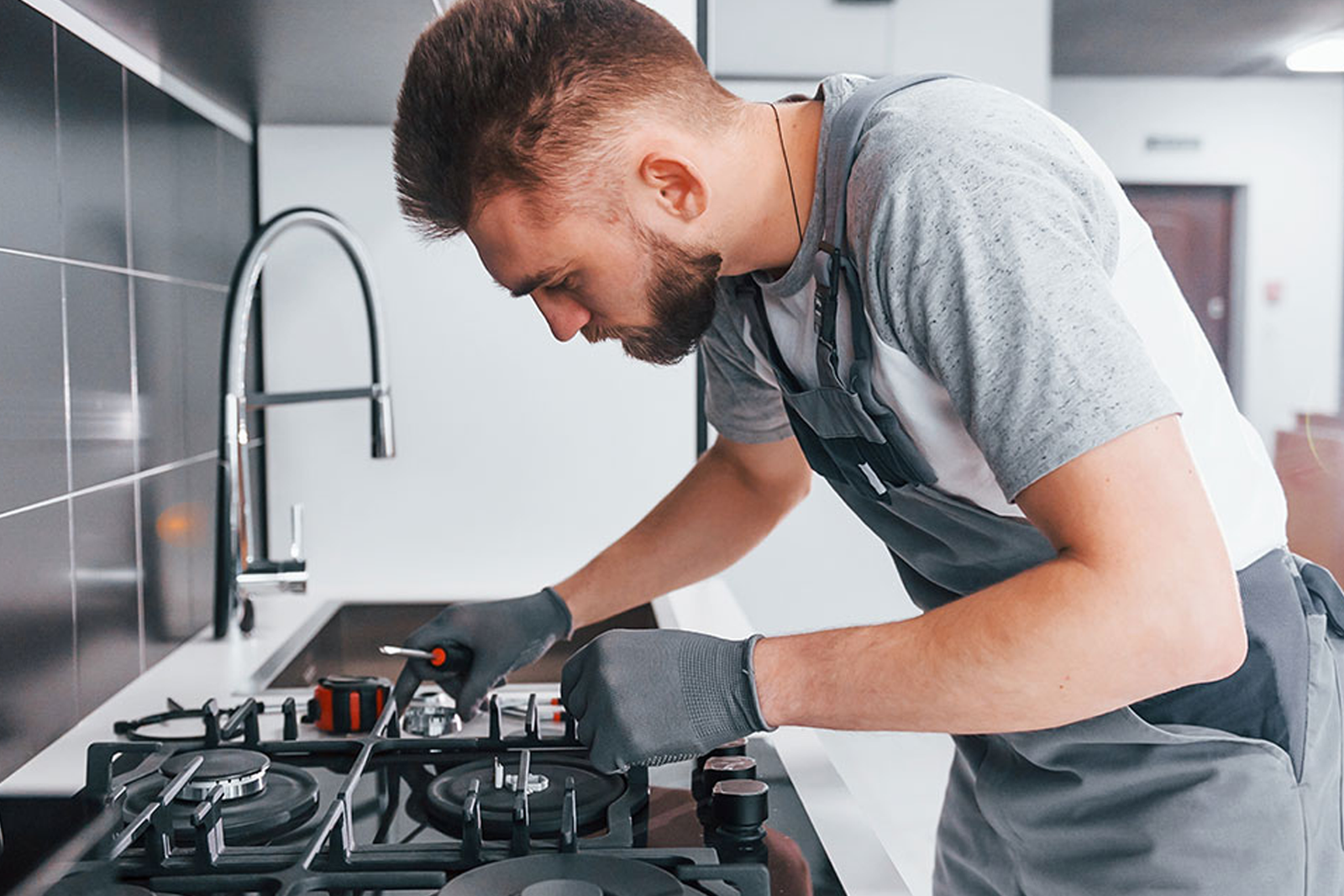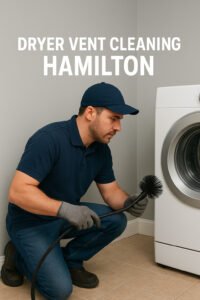Gas cooker malfunctions can turn your kitchen from a comfortable cooking space into a potential danger zone. Unlike electric appliances, gas-powered cooking equipment demands immediate attention when problems arise due to serious safety risks involved.
Understanding how to respond properly to gas appliance issues protects your family while preventing small problems from becoming major hazards. The key lies in knowing which situations you can handle safely and when professional intervention becomes essential.
Recognizing Dangerous Warning Signals
Your gas cooker communicates potential problems through various warning signs that should never be ignored. Early recognition prevents minor issues from escalating into emergency situations, making timely cooker repair services essential.
Unusual Odor Detection
Natural gas carries a distinctive smell designed to alert you to potential leaks. Any gas odor, regardless of intensity, demands immediate attention and specific safety protocols.
Even faint gas smells can indicate developing problems that worsen over time. Never dismiss unusual odors as temporary issues that will resolve themselves.
Flame Color and Pattern Changes
Healthy gas flames burn blue with minimal yellow tips. Orange, yellow, or red flames indicate incomplete combustion that can produce dangerous carbon monoxide while reducing heating efficiency.
Flame patterns should remain steady and consistent. Flickering, weak, or irregular flames often signal airflow problems or component malfunctions requiring professional diagnosis.
Operational Performance Issues
Difficulty igniting burners, inconsistent heating, or unusual noises during operation indicate internal problems that affect both safety and performance.
Poor heating efficiency forces your appliance to work harder, potentially creating stress on safety systems and increasing the likelihood of component failures.
Emergency Response Procedures
When gas appliance problems occur, quick and appropriate action prevents dangerous situations from developing into true emergencies.
Gas Leak Response Protocol
Upon detecting gas odors, immediately shut off the gas supply at the main valve or cylinder connection. Avoid operating electrical switches, phones, or any devices that might create sparks.
Open all windows and doors to provide maximum ventilation while evacuating the building immediately. Contact emergency services from a safe location away from your home.
Never attempt to locate leak sources yourself – this task requires professional equipment and expertise to perform safely.
Electrical Component Failures
Modern gas cookers incorporate electrical systems for ignition, timers, and safety controls. Electrical malfunctions combined with gas systems create complex safety challenges.
Turn off power at the circuit breaker when electrical problems become apparent. Avoid touching electrical components with wet hands or when standing on wet surfaces.
These hybrid electrical-gas issues typically require specialized diagnostic equipment available only to certified repair technicians.
Professional Service Requirements
Gas appliance repairs involve legal, safety, and technical considerations that make professional service essential for most problems.
Certification and Licensing Standards
Licensed gas technicians undergo extensive training in safety procedures, local codes, and proper installation techniques. These qualifications ensure repairs meet regulatory standards while protecting your family.
Attempting unauthorized gas appliance repairs may violate local regulations, void insurance coverage, and create liability issues if problems develop later.
Complex System Components
Gas valves, pressure regulators, safety controls, and thermostats require specialized knowledge to service properly. These components directly impact safety and must function correctly to prevent hazardous conditions.
Professional technicians carry proper testing equipment to verify gas pressures, check safety device operation, and ensure complete system integrity after repairs.
Selecting Qualified Repair Services
Finding competent gas appliance technicians requires careful evaluation of credentials, experience, and service quality.
Verification of Qualifications
Request proof of gas safety certifications before allowing anyone to work on your cooker. Legitimate professionals welcome these inquiries and provide documentation readily.
Licensed technicians understand local building codes, safety requirements, and proper installation procedures specific to your area.
Service Quality Assessment
Experience with your specific appliance brand and model ensures faster, more accurate diagnosis and repair. Specialized knowledge often results in better long-term solutions and fewer return visits.
Ask about warranties on both parts and labor. Reputable companies stand behind their work and use quality replacement components.
Maintenance Strategies for Long-Term Safety
Regular maintenance prevents many gas appliance problems while ensuring continued safe operation throughout your cooker’s lifespan.
Routine Cleaning and Inspection
Keep burner ports clear of food debris and grease buildup that can affect gas flow and combustion quality. Clean spills immediately to prevent hardening and component damage.
Monthly visual inspections help identify developing problems before they become safety hazards. Look for corrosion, loose connections, or damaged components.
Professional Safety Inspections
Annual professional inspections provide comprehensive safety evaluations that identify potential problems early. These services typically include gas pressure testing, safety device verification, and component lubrication.
Preventive maintenance costs significantly less than emergency repairs while ensuring continued safe operation.
Frequently Asked Questions
What should I do immediately if I smell gas in my kitchen?
Shut off the gas supply immediately, open all windows for ventilation, avoid electrical switches or sparks, evacuate the building, and call emergency services from outside. Never ignore gas odors or try to locate the source yourself.
Can I repair my gas cooker myself if I’m handy with tools?
No, gas appliance repairs require licensed professionals due to safety risks and legal requirements. DIY gas repairs can create dangerous situations, violate local codes, and void insurance coverage.
How do I know if my gas cooker flames are burning safely?
Safe gas flames burn blue with minimal yellow tips. Orange, yellow, or red flames indicate incomplete combustion that produces carbon monoxide. Contact a professional if you notice abnormal flame colors.
When should I replace my gas cooker instead of repairing it?
Consider replacement if repair costs exceed 50% of a new appliance’s price, if you’re experiencing frequent breakdowns, or if safety features are failing. Modern cookers offer improved safety and efficiency features.
How often should my gas cooker receive professional maintenance?
Annual professional inspections are recommended for gas appliances. More frequent service may be necessary if you cook extensively or notice any performance changes.
What certifications should I look for in a gas appliance repair technician?
Look for gas safety certifications, proper licensing for your area, insurance coverage, and experience with your specific appliance brand. Always verify credentials before allowing work to begin.
Cost-Effective Safety Planning
Budgeting for gas appliance maintenance and repairs helps ensure safety while managing household expenses effectively.
Preventive vs. Emergency Costs
Regular maintenance costs substantially less than emergency repairs while preventing dangerous situations. Annual inspections typically cost a fraction of major component replacements.
Emergency service calls often carry premium pricing, especially during holidays or weekends when problems tend to occur most frequently.
Building Emergency Preparedness
Preparing for gas appliance emergencies before they occur protects your family and minimizes property damage risks.
Essential Safety Equipment
Install gas detectors in cooking areas to provide early warning of potential leaks. Test these devices monthly and replace batteries according to manufacturer recommendations.
Keep appropriate fire extinguishers accessible and learn proper usage techniques. Class B extinguishers handle grease fires common in kitchen environments.
Family Safety Planning
Ensure all family members know gas shutoff valve locations and emergency procedures. Practice evacuation routes and establish meeting points away from your home.
Maintain updated emergency contact information for gas companies and qualified repair services in easily accessible locations.
Gas cooker safety requires vigilance, proper emergency response, and professional service when problems arise. Regular maintenance combined with quick professional intervention for repairs ensures continued safe operation while protecting your family and property from potentially serious hazards.
Never compromise on safety when dealing with gas appliance issues – the risks are simply too significant to handle incorrectly



